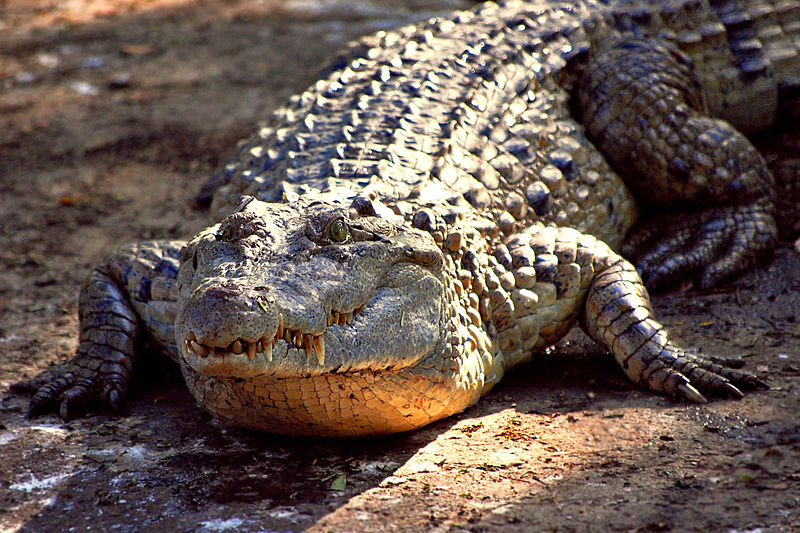Is it too late for UT-Arlington to change its mascot to a prehistoric giant crocodile that feasted on dinosaurs?
Because with the discovery of the new species Deltasuchus motherali, fossils of which were unearthed at an Arlington dig site and identified in a recent paper in the Journal of Vertebrate Paleontology, it seems fitting. Name it “Chompy” for its carnivorous and indiscriminate appetite, as evidenced by the bite marks found on fossils of prey animals in the area.
A team of paleontologists and geologists from the University of Tennessee Knoxville, San Antonio’s Witte Museum, and the University of Wisconsin-Parkside says the remains of the 20-foot crocodile are just a start, and that the Deltasuchus motherali is “only the first of several new species to be reported from the locality.”
The locality is the Arlington Archosaur Site, which D Magazine wrote about in 2013, an excavation site that, by the vagaries of millions of years of geological change and much more recent economic development, sits about smack dab at the heart of North Texas sprawl. Volunteers and scientists have been excavating the site in north Arlington since 2008, about five years after it was first discovered by UT-Arlington students. This newly discovered crocodile ancestor was named for a then-15-year-old volunteer, Austin Motheral, who first found the partial skull of the Deltasuchus.
About 95 million years ago, when most of Texas was underwater, the Dallas-Fort Worth area was part of a peninsula, a particularly rich ecosystem for flora and fauna. According to researchers, the Arlington Archosaur Site has preserved much of that ancient diversity, providing an unrivaled snapshot into the North America of the mid-Cretaceous, the geologic period that ended with the mass extinction of the dinosaurs. It’s proved particularly rich grounds for ancient crocodile ancestors, hence the “archosaur.”
Excavation of the Arlington Archosaur Site is funded by a grant from the National Geographic Society. The site itself, active as it is and surrounded by construction and residential development, is off limits to the public. But the Perot Museum collects the fossils, including the remains of the Deltasuchus, found there. Along with these newly identified crocodile fossils, teams have found the remains of dinosaurs and other ancient beasts. Sounds like there’s also plenty more to be dug up.






